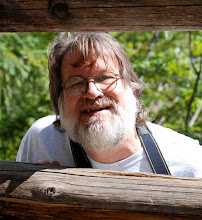Murder Stories as Infotainment
Well, since we’re all going to be subjected to Amber Frey for however long her fifteen minutes of fame lasts, I thought it behooved this woo-woo writer to at least throw up some phaser shields.
I’ll confess that I have watched very little of anything having to do with Scott Peterson. Murder stories as infotainment don’t thrill me. That’s primarily because I’ve talked with people who’ve died and been revived; these people say there is no death, only transition to another place. That to me is a much more interesting story than choke-choke, stab-stab, or bang-bang you’re dead.
You might say that if they didn’t really die they really weren’t dead, but they say they know—as a benchmark beyond belief—that nobody really dies. You might think that news broadcasts are objective journalism but NDErs think the news is incredibly short-sighted when it comes to dying.
In the face of so much anecdotal evidence for soul survival, it mystifies me why the mainstream media appears to have such little interest in exploring the afterlife mystery. We seem much more preoccupied with the Murder of the Week than with the possibility that a murder victim is alive and well in another dimension. We’re focused on the gruesome details of horrific acts against a physical body and apparently not the slightest bit intrigued by what happens to the soul or personality of the so-called deceased.
If someone ever proved that death is a transition, not a termination, the fundamentals of murder and reporting on homicide cases would require change. It would be more difficult to spin a soap opera of suffering onto a framework of eternal life. Here are some of my extrapolations based on accounts of NDEs.
In the first place, many NDErs who were involved in accidents say that they were already out of their bodies before the fatal impact. Coming back to a mangled body was extremely painful, but leaving the body was a piece o’ cake that happened on auto-pilot. I’ve written before that a friend of mine who suffered a car crash was out of her body and above her car before her head hit the front windshield. She didn’t feel pain until she returned to her body. I believe that many murder victims gain a quick out and die painlessly. We don’t need to worship the pain of dying.
Secondly, many NDErs experience ecstasy during their out-of-body adventure. They come back with stories of different realities than life in the flesh. They no longer fear death because they know that there’s no place like home, which is how they instantly felt in that nonmaterial place. Murder victims could be having the time of their lives.
Third, many NDErs (although not all) experience life reviews during their visit to their spiritual home. This implies that sooner or later, both the murderer and the murder victim undergo a life review. Unlike trials here in the physical world, by many accounts there are no cloaking devices in the spirit world. Everybody knows everything. Thoughts and deeds are buck-naked. The murderer comes to the afterlife where everyone knows exactly what happened and the murder victim is alive and well and also knows everything.
Fourth, many NDErs talk about reincarnation, karma, and soul contracts. As amazing as it sounds to those of us in physical reality, a murder is sometimes the fulfillment of a soul contract. (If you’re thinking of offing someone, you’d better come up with a better explanation than that, though.) I’ve had an admittedly difficult time working my way through the premise of death by appointment, but it nevertheless deserves scrutiny.
Fifth, many NDErs claim or suggest that before we incarnate, we have already made our death plans. We’ve chosen the date and manner of our exit. If this were true and common knowledge, it would cast a different light on murder. How could it be cast in such tragic terms if it fulfills the plan the soul concocted previous to birth?
Sixth, while we’re at it, capital murder resulting in execution also brings up the issue of what we’re doing when we as a society terminate someone’s physical life. I suspect many people presume that we’re sending convicted killers to oblivion. Others appear happy to send convicted rejects back to God (or perhaps they think they’re sending them directly to Satan. Like, “Here, you take him. We don’t know what to do with him, and it’s politically incorrect to rehabilitate bad guys.”)
For some time I have noticed our rhetoric when describing death from murder to natural causes. Each time we describe death as tragic and disregard any possibility that the victim still exists, we only reinforce the soap opera mentality. We’re deluged with this stuff day in, day out, no contest.
I understand that this may all sound like lunacy if you haven’t had any exposure to the IANDS community, had your own NDE or OBE, or thought outside the box of the see-it-to-believe-it community. Yet the more I am exposed to NDE groups and literature, the more I question conventional thinking, especially that bombarding us from the commercial media.
The Scott Peterson case became a national obsession. TV station coverage of the whole sordid affair plods through the same old mentality of making celebrities out of criminals, their “tragic” victims, and their legal reps. The media society is having great fun demonizing Scott Peterson, stirring up the outrage, and raking in the cash.
Crime is big business. Good for ratings. Hot for profits.
But maybe we don’t have the story quite right. Maybe we don’t understand death. Maybe we don’t understand life.


0 Comments:
Post a Comment
<< Home